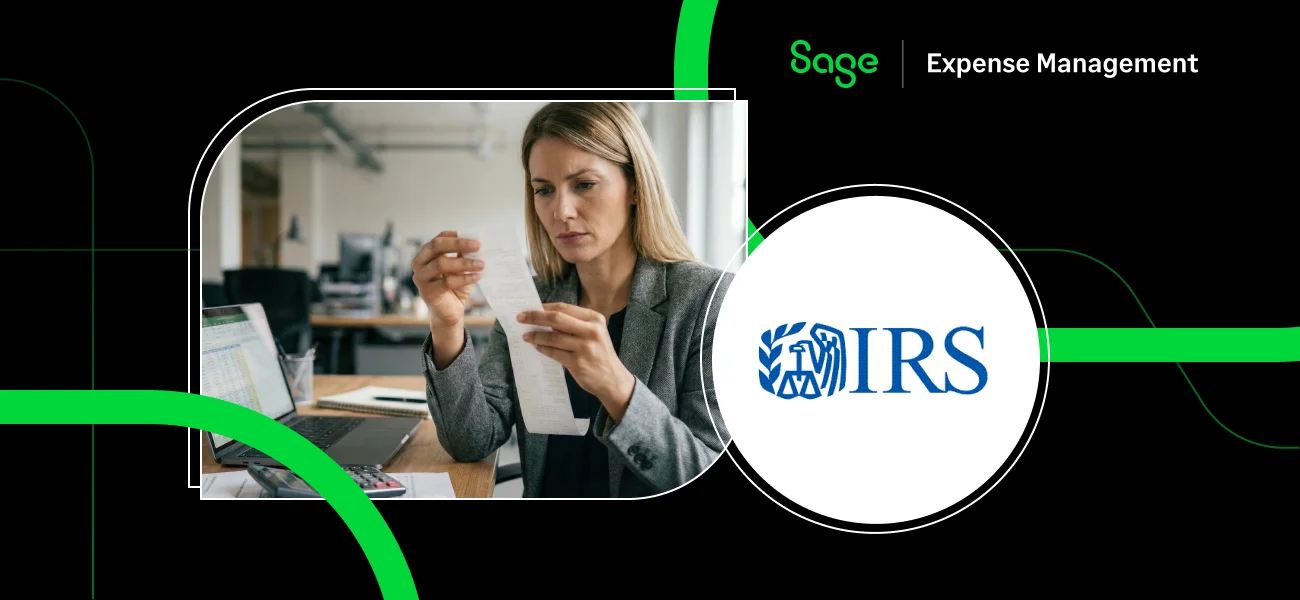Expense management is not easy, but it’s something all businesses need to deal with if they want to avoid costly errors and other financial concerns. One of the best ways businesses can ensure their expenses are on track is to conduct financial audits.
There are numerous ways expense reporting can go wrong, but with regular audits, businesses can avoid these errors and save time and money. Financial audits can even improve your financial productivity.
While traditional financial audits themselves can seem like a challenge, plenty of digital tools and resources available today can help make the process go a lot smoother. For instance, Sage Expense Management’s expense management software has everything businesses need to make audits and expense reporting a breeze.
Financial audits are the way to go if you want to avoid a financial nightmare and stay on top of your expenses.
What are financial audits, and why are they important?
Generally, most people think of an audit as an IRS review of a company’s financial records to ensure everything is fair and accurate. While this isn’t wrong, it technically only refers to one kind of audit when, in fact, there are three main types of financial audits.
- External audits: Audits performed by external third parties to help remove bias.
- Internal audits: Audits that businesses conduct themselves for expense management.
- IRS audits: Audits routinely performed by the IRS to ensure businesses are fairly and accurately reporting their taxes.
The purpose of this guide is to help businesses prepare for internal audits, but organizations can undoubtedly use the information to help with external or even IRS audits as well.
Overall, financial audits are essential because they can help a company experience better financial stability. In addition, the more you know about how your money is being spent, the more you can avoid errors and budget issues in the long run.
Financial audits can also provide essential business insights that can help generate more positive business results. For example, 91% of audit committee members say financial audits can help businesses identify opportunities to improve performance that might have otherwise been missed if the audit had not occurred.
This is because modern auditing tools and software — like Sage Expense Management’s Audit Trail feature in the expanse management software suite — enable companies to use metrics and analytics to look at large pools of data across numerous areas. As a result, companies can learn more about their industry and market through audits and auditing tools, identify inefficiencies and risks, and discover shortcomings in processes and policies.
As a whole, there are numerous benefits to conducting financial audits and using digital expense reporting tools, such as:
- Helps eliminate fraud
- Provides proper documentation
- Saves time, effort, and money associated with traditional expense reporting
- Provides a big picture of your business
- Adds a layer of transparency and accountability
- Keeps businesses compliant with IRS laws and standards
- Enables better troubleshooting
Regular financial audits can also help businesses better prepare for future economic uncertainty. For example, if the recent COVID-19 pandemic taught us anything, many companies were unprepared for such a financial crisis. But by conducting regular audits, businesses can better plan financially for such events.
How to prepare for a more efficient financial audit of your business
The key to any financial audit is being as organized as possible. The more organized your expense records and books are, the easier the process will be.
1. Align expense reports with accounting
It’s fairly common for businesses to have their general expense reports differ from their accounting records, which can result in inconsistencies. And while this might not be a big deal in general situations, it’s not great for audits.
So you’ll want to have your financial reports and accounting records organized to make auditing easier. This will allow you to identify inconsistencies and take care of them.
In the future, using an expense management software can help you keep all this information organized and in one place so there are fewer issues or inconsistencies the next time you conduct an audit.
As a whole, it’s best to keep all financial records organized in one place, and expense reporting tools can help with that.
2. Keep digital records of everything
If you are still doing things the traditional way, such as keeping paper records, you are making things harder on yourself. Businesses that automate and digitize their processes tend to run more efficiently; the same holds true for financial records.
Keeping digital records doesn’t just help you keep better track of expenses but also makes managing expense reporting and auditing much simpler. It’s a lot easier to trace back an error with digital records than it is with paper records, for example.
Digital records are less of a hassle. And keeping track of digital documents is less time-consuming and can help you stay more organized.
3. Identify expense changes
Keeping track of expense changes is essential when managing expenses and conducting audits. While it’s normal for businesses to have variances in how they spend from year to year, significant changes can indicate an issue.
For example, if you spent thousands more on average business expenses in the past year but did not plan to and recorded relatively consistent figures, it could mean an error was made at some point. Looking for these significant changes when conducting an audit can help you trace records to pinpoint the error and avoid the issue going forward.
4. Categorize expenses and funds correctly
When performing an audit, it is incredibly helpful if all expenses and incoming funds or sales are also categorized correctly. This helps you more easily identify what money is being spent on and where money is coming in from.
With the right cash flow management software, you can easily separate expenses and incoming funds into categories to make performing an audit easier. This also allows your business to spot errors or inconsistencies in spending, like a specific cost taking up a high percentage of the budget when it shouldn’t.
Keeping expenses and funds categorized and more organized also enables businesses to see when a business expense needs to generate more profits to justify what is spent on it. In this case, the budget used for that expense could be shifted somewhere else where it will be more effective.
5. Look for opportunities to save
Audits are great for keeping track of records and spending to ensure everything is fair and accurate, but it’s also a great way to investigate ways to save on costs. So when preparing for an audit, it’s a good idea to have a general idea of ways your business would like to save money or areas where you think you could save.
That way, when you actually perform the audit, you can look at specific expenses or areas to identify if the saving you’d like to do is possible or how you can make it possible. And again, fintech systems, like Sage Expense Management’s expense management software, are excellent tools for helping businesses manage their money and identify ways to save.
Audit smarter with the right expense management tools
Regular financial audits are essential for maintaining your business’s financial health. With the right expense reporting and management software, you can take your audits to the next level and simplify the process to ensure more efficient outcomes.



















